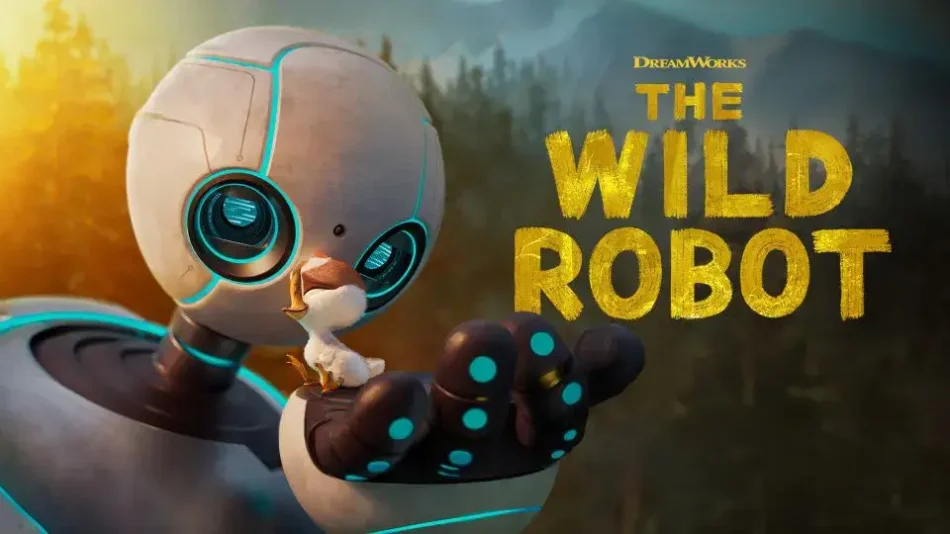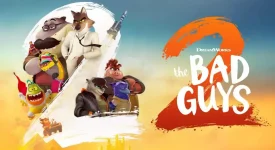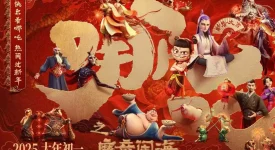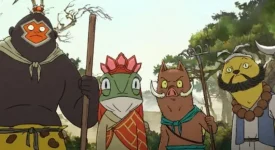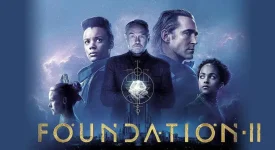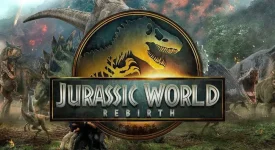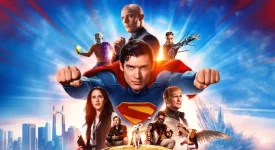(may contain spoilers)
Douban rating: 8.1
Director: Chris Sanders
Douban Comments: “I’d suggest renaming it Love, Wilderness, and Robots. The film is packed with laughs, almost from beginning to end, all wrapped in warmth and gentle humor. This is exactly what a joyful movie experience should feel like.
Even though ‘love’ isn’t in the title, it’s present everywhere in the story. I believe everyone will feel it – the kind of love you truly believe in, deep in your heart.
The part that touched me most – the one that brought the most tears – was right before they let each other go for the first time. That longing, that reluctant farewell, carried a kind of love that has always guided and grounded me. True love isn’t about control or conditions. Love is about helping each other grow and becoming better together.
‘I love you, and you are free’.”
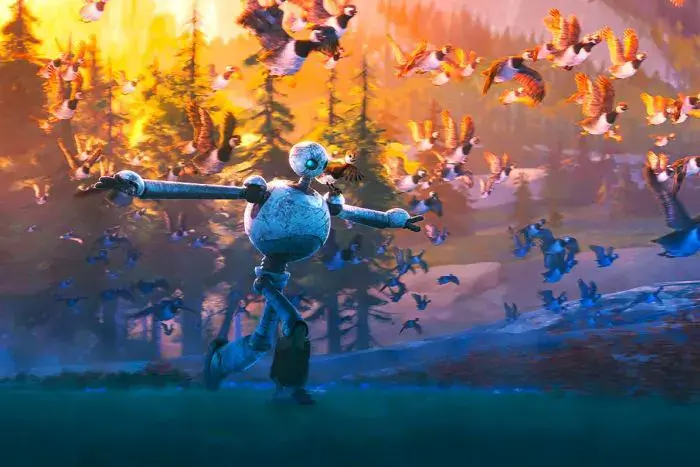
“Being a mother is a task, a role, and a kind of situation. The animated film The Wild Robot has a depth that goes far beyond what you’d expect. At its heart, it’s a story about love and growth – how love can make us go against our nature and break free from old patterns.
Roz’s arrival on the island is like a butterfly flapping its wings and causing a tsunami. She changes everything. The once divided, fighting animals come together like a family, working toward a shared goal. It turns out that all it takes to build a perfect utopia is one great mother.
At first, the word ‘wild’ in The Wild Robot just refers to the untamed place Roz ends up in. But as the little goose grows up, ‘wild’ becomes her true spiritual home. Roz transforms – from something man-made into something fully natural and alive.
Through choosing the wild and learning how to be a mother, Roz slowly grows a ‘heart’. Her identity as a mother makes her shine, new and full of life. Her selfless care, her willingness to sacrifice, her honest desire to help – these deeply human emotions give the film its powerful impact.
There’s no need to fear hardship, because failure is part of growing. And in the vast wild, life and nature bloom with endless possibility.”
“Emotionally, it’s a real tearjerker. Even someone like me, with a high threshold for crying, couldn’t hold back tears during the scenes where Roz and Brightbill are separated and then reunited. But on a more rational level, there are also some thought-provoking aspects.
For instance, Roz is a robot with no gender, yet because of her voice acting, design, and nurturing role, audiences naturally see her as female – a mother. Brightbill, the ‘ugly duckling’ of sorts, is genetically destined to learn how to feed himself, swim, and fly. Roz’s programming only plays a supporting role. If we draw a parallel to real-life parent-child relationships, it suggests that every individual is fundamentally independent. Parents are companions in a child’s growth, but no one owes anyone else anything. That idea might feel almost unfilial from a traditional East Asian perspective, don’t you think?
Also interesting is Roz’s relationship with Fink the fox and the other animals. All levels of the food chain somehow coexist peacefully – except for humans. In a way, it feels like humans are seen as even more dangerous than robots, posing a greater threat to nature itself.”

